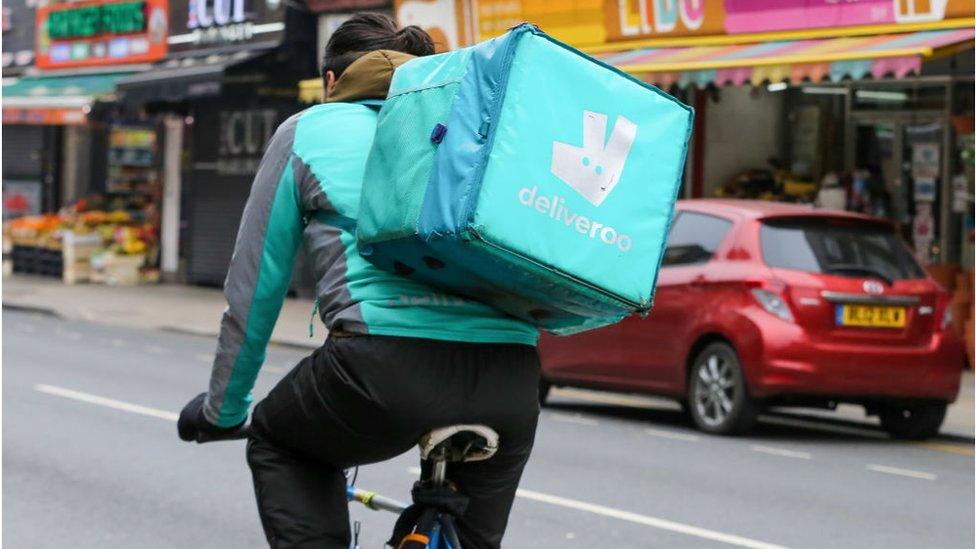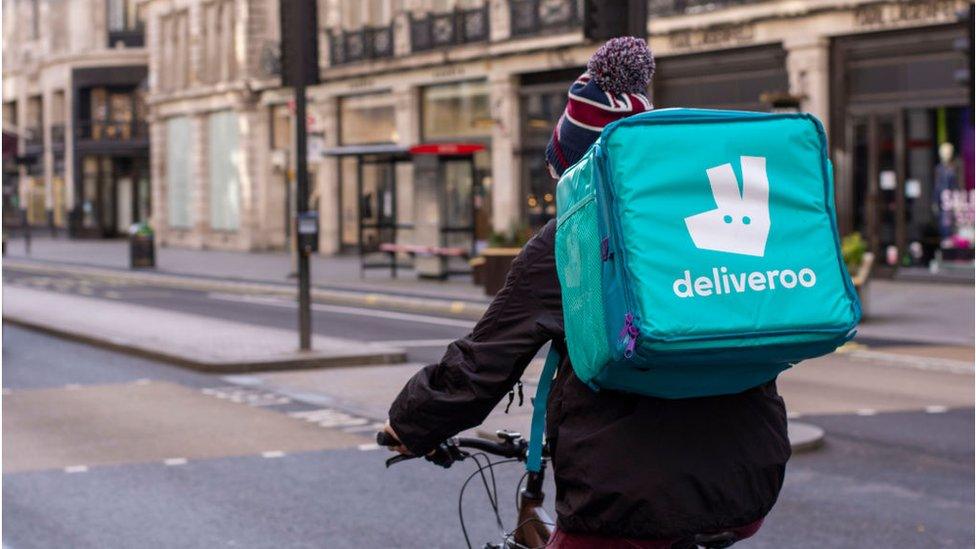Deliveroo: Investor warns of workers' rights issues at firm
- Published

One of the UK's biggest investors says it will not invest in Deliveroo because of concerns over workers' rights.
The delivery company expects to be valued at up to £8.8bn when it lists its shares in April.
But Aviva Investors, which manages £365bn of assets, said it would not invest as Deliveroo's riders did not get the minimum wage, sick leave and holiday pay.
Deliveroo said its self-employed riders had "freedom" to choose their hours.
David Cumming, chief investment officer at Aviva, told the BBC's Today Programme investors were taking social responsibilities "a lot more seriously".
"A lot of employers could make a massive difference to workers' lives if they guaranteed working hours or a living wage, and how companies behave is becoming more important."
He pointed out that Deliveroo workers are "currently classed as riders [which means] they don't necessarily get basic rights for minimum wage, sick leave or holidays".
"We won't be investing in Deliveroo for a number of reasons but that is one of them," he said.
Investment risk
Mr Cumming also warned of the risk that drivers will have to be reclassified as workers, which would entitle them to rights such as sick and holiday pay.
"It's an investment risk if the legislation changes," said Mr Cumming.
Uber recently chose to reclassify its drivers as employees after a landmark UK supreme court case last month.

Deliveroo's chief executive, Will Shu, founded the business in 2013
Since losing a five-year legal battle with drivers who claimed it had wrongly classified their employment status, Uber has offered holiday pay, a guaranteed minimum wage, and pensions benefits to its drivers.
Other gig economy companies have been looking closely at the Supreme Court's verdict in February although it does not apply to Uber Eats - the food delivery arm of the business.
Deliveroo has set aside more than £112m to cover potential legal costs relating to the employment status of its delivery riders.
'Punctured profits'
It warned potential investors of the risk of litigation around the world in documents setting out its plans for a stock market debut published on Monday.
"The European Commission is set to draw up new legislation governing how the gig economy model works across the bloc," pointed out Susannah Streeter, an analyst at Hargreaves Lansdown.
"If Deliveroo is forced to change the way it classifies its riders in the future, it is likely to puncture its profits prospects, and could even derail the delivery giant."
Mr Cumming said there was a "combination of investment risk and social issues that affect our judgment whether the shares are a buy or not".
Deliveroo, which was founded in 2013, said it will hand its riders bonuses of between £200 and £10,000 when it floats, depending on the number of orders they have delivered.
A spokesman said: "Deliveroo riders are self-employed because this gives them the freedom to choose when and where to work.
"We are confident in our business model, which has been upheld by UK courts three times, including the High Court twice."
Related topics
- Published22 March 2021

- Published8 March 2021
